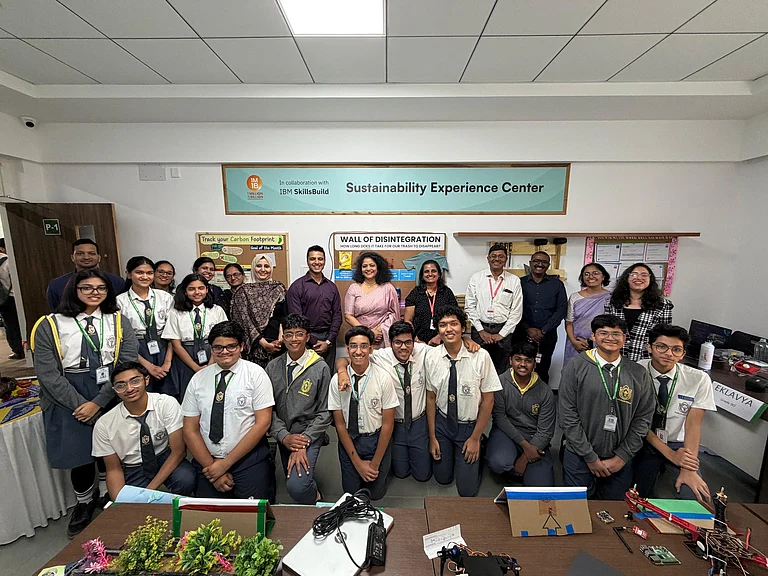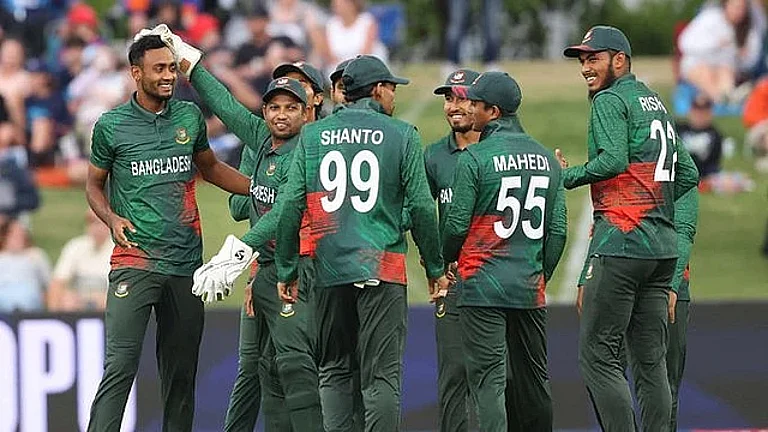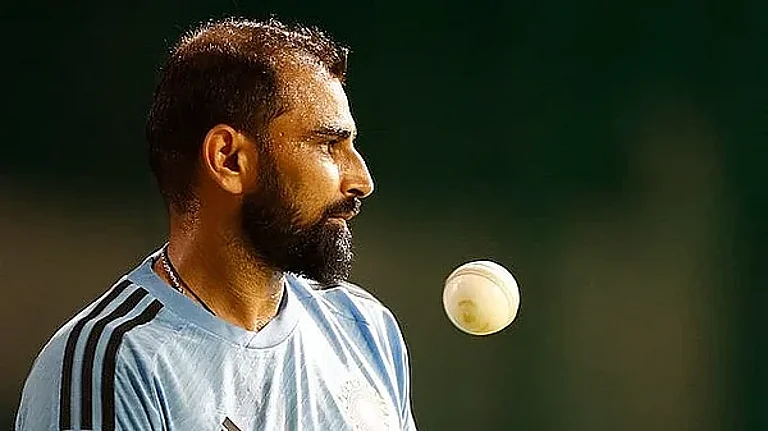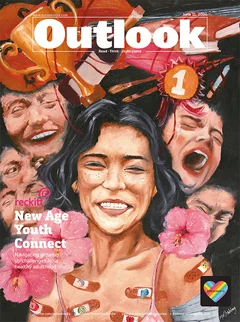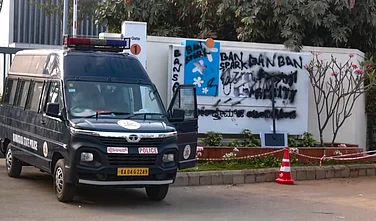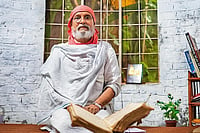How has the Sexual and Reproductive Health and Rights (SRHR) narrative developed in the country?
Mohammed Asif: Sexual reproductive health rights and services (SRHR) is an integral component of public health and wellness; and the Government of India through its Rashtriya Kishore Swasthya Karyakram (RKSK) is doing much in this domain. Several civil society organisations and CSR partners, including Plan India and Reckitt, have joined hands with the government to achieve the outcomes of the RKSK programme.
Among other things, the RKSK emphasises on improving knowledge, attitudes and behaviour of adolescent and young girls and boys on sexual and reproductive health, promote menstrual hygiene for all girls and reduce teenage pregnancies. It aims to establish adolescent-friendly health facilities for improved and quality youth and adolescent-friendly SRHR and HIV services that are accessible, affordable, acceptable, equitable, appropriate and effective.
Komal Goswami: SRHR is not merely about imparting biological knowledge; it is an approach that nurtures gender equality, challenges harmful societal norms, and promotes respect for diversity. India has long been celebrated for its progressive attitudes towards sexuality and gender. The temples of Khajuraho, the Kandariya Mahadev Temple stand as enduring testament to India’s approach to sexuality education. Narratives of Ardhanarishvara and Shikhandi provide further insight into India’s progressive stance.
Nevertheless, in the present day, implementing SRHR education in India has not been without its challenges. We continue to struggle in some of the educational systems, facing ongoing obstacles despite efforts to integrate it.
What about TBBT?
Mohammed Asif: TBBT is pivoted on pillars like inclusion, consent, protection, equity, awareness. The approach has yielded clear outcomes for adolescents and youth, including engaging the school managements and local communities in the North-Eastern States. Being one of the largest adolescent and youth-centered CSR programmes in the North-East, more than 200,000 programme participants have improved health and wellness. We are thankful to Reckitt and commend its leadership for the gracious support that enables us to continue working with large numbers of girls and boys and deepen their understanding and actions to improve their health and achieve their full potential in our country.
Komal Goswami: TBBT aligns perfectly with the National Curriculum Framework, adhering to the guiding principles of the Adolescence Education Programme (AEP) framework. It introduced ‘Healthier, Happier and Smarter Adolescents’ (HHSA) the first-of-its-kind life skills curriculum in India for adolescents aged 10-14 and 15-19. This two-part curriculum comprises 27 lessons plans about growing up, sexuality education and life skills.
The curriculum is carefully designed after focused group discussions with adolescent students, educators and parents and takes into consideration the needs of all the stakeholders. It equipped adolescent students with knowledge and skills to help them make informed decisions; show resilience; stay healthy; and channel their curiosities in the right direction.
TBBT is pivoted on pillars like inclusion, consent, protection, equity and awareness
What is the significance of SRHR?
Mohammed Asif: It is significant because it is not only about health and wellness but it is also about the larger space, the social and economic concerns that emanate from the deficiency in that space.
Early marriage, which is a very important concern within the SRHR question, has huge implications for not just the child who gets married but also for the offspring which eventually puts a lot of strain on the public health system. So, simple information-sharing with communities to delay the age of marriage can yield massive dividends for the country and the public health system which could focus on bigger priorities than things which are easily avoidable.
Komal Goswami: At its core, SRHR is not about promoting promiscuity or obscenity; rather, it is a rights-based approach to education, one that empowers young individuals with the knowledge and skills to navigate their sexual and reproductive health in a responsible manner. To deny children access to comprehensive sexuality education is to deny them their rights – rights to information, to health, and to autonomy over their own bodies. In essence, it is a violation of their fundamental rights as a human being.
So, how do you plan to overcome these challenges?
Mohammed Asif: TBBT programme has put youth at the centre of the discourse. So, it is no longer that government and some NGO workers go out in the community and start trying to make a difference.
Schools and communities have taken a lead. They have used different ways of behaviour change communication.They have used mass media, mid-media, micro-media efforts to usher in that campaign.
And that is where our effort is to see if we can set up youth leadership academies on sexual reproductive health rights.
Komal Goswami: In addressing challenges, our primary focus lies in providing support to young individuals. We actively engage parents and advocate for community autonomy, making sure that our initiatives align locally. We also use various platforms like television, radio, and organised events to spread awareness. We remain focused on our primary objective that is to educate young people about SRHR.

How do you sensitise the parents?
Mohammed Asif: It is very commonly known that a girl was supposed to be married by the family, her peers got to know about it, they went and they were able to influence and prevent the marriage from happening.
By providing information, insights, what is going to happen then parents realise that this was a mistake that they are doing. So, the point is that young people do have the power, they have the capability, they have the potential. It’s just about how do we ignite those processes and that’s what TBBT is all about.
It’s about igniting the potential. Of course, in the initial stages, we took it as a project.
Now, much of the conversations are undertaken by local community level volunteers, peer to peer processes are coming in now. And we believe that the whole TBBT 2.0 should actually be 100% youth-led process and we are moving in that direction already.
Komal Goswami: TBBT also identified that to help adolescents understand themselves better, it is imperative to include parents to help bridge the gap and acceptance. With Durex TBBT Parent Manual, the programme tackled the root of the problem. This Parent Manual is a step towards reducing hesitation in parents and introducing them to the five pillars of TBBT—Inclusion, Protection, Equity, Awareness, and Consent. The manual is meant to empower parents to understand the complexities of sexuality education with the right knowledge, confidence and empathy. The parent manual provides parents with the tools and knowledge they need.
How do you compare this initiative with other initiatives? What is the fundamental difference between this and others?
Mohammed Asif: This is a very forward-looking programme. This is about changing the life situation of half of the population of this country, who have for generations had missed out on these opportunities.
It is about taking India into the future. It’s about creating a pathway to success. And therefore, sexual reproductive health rights is the term that we use. In fact, our belief is that TBBT should become synonymous with SRHR.
In fact, for young people, sexual reproductive health rights often bring certain visions, you know, view of life. Whereas The Birds and Bees Talk is much more non-threatening, very easy and gentle, even though they mean the same thing. They’re talking about the same goal.
So the good part is that by bringing this nomenclature into the conversation, the uptake of the ideas of this project, at the end of the day, it’s about changing mindsets.
Komal Goswami: Since the programme’s inception in 2020, TBBT has developed palatable ways to engage adolescents, youth and communities making sure that it doesn’t come across as preachy holier-than-thou speech. Teenagers find it relatable and unconventional since we try to normalise difficult conversations for them. With Durex TBBT, we are providing age-appropriate, culturally-sensitive sexuality education, breaking down barriers and initiating open, honest conversations about growing up life skills to adolescents.
Would you like to cite any notable outcomes?
Mohammed Asif: The most significant outcome for me has been the type of participation that we have been able to garner from the schools.
Because we, as a development practitioner in that space for quite some years, I thought that would be one of the most difficult things. Getting into a community, getting their attention, their participation was much easier, but getting an institution to wholeheartedly come forward and participate, and that too in big numbers, I thought it would be more challenging. So getting 13,000 schools and their teachers, and their principals, their school management committee to own this, to actually stand behind this idea, to me is one of the biggest achievement that will sustain.
SRHR is not about promoting promiscuity or obscenity; rather, it is a rights-based approach to education, one that empowers young individuals with the knowledge and skills to navigate their sexual and reproductive health in a responsible manner
The second is the youth participation, and within the youth, and there are varieties.I have come across young people who are still some distance away from being a champion of change, but there have been many young people I have met in my journey, particularly during the festival, the Hornbill Festival, because that was one time when I had the opportunity to interact with a large number of young people, particularly Nagaland and some from other parts of the state, and the type of energy and enthusiasm and the determination that I saw within them for change, for development, for improvement, on these lines, was something which really gave me a lot of hope, and also a sense of satisfaction.
Komal Goswami: TBBT’s national and regional campaigns have reached 420 million people, generating a PR Value of 572+ Million. Through innovative tools like its AI-based chatbot Hello Jubi, the programme ensures that adolescents have access to reliable information and support, transcending taboos and discomfort. The programme is also a firm advocate for the United Nations’ Sustainable Development Goals (SDGs). In particular, it focuses on SDGs related to Good Health and Wellbeing, Quality Education, and Gender Equality.
After TBBT’s intervention in six major provinces in the Northeast of India, Baseline Top Hashtags changed from #afspa #indianarmybrutality #covid19 to #durexbirdsandbeestalk #worldhealthday #aidsawareness as the Endline Top Hashtags. Sentiments of fear, sadness, and anger changed to joy, love, and surprise.
How do you keep pace with the changing discourse in law and policy?
Mohammed Asif: One of the great strategies that was adopted by the team in this project was the work actually started with engagement with the state governments.So the first touch points where each of the state leadership in the public health, in the school, in the education, were touched by our people.
So that kind of engagement and ownership, and that’s where the success is that it’s not without the laws and policies and people who make those laws, policies and practices, because if I were to just give you one lens, the total money that we are bringing to the table for this is, would be a fraction, maybe less than 1% of what the governments in these states, and the central government in that part, the Northeast Council and all, are investing on youth development, on public health and all.
So our money, our investment is miniscule. So what we wanted to do was that how do I make this money make a difference. So we have district magistrates, SDMs, health ministers, virtually all the education department officials, they are actively engaged, virtually on a month-to-month basis with this project, and that helps to ensure that the convergence is established at all times.
MORE FROM THIS ISSUE
Komal Goswami: To stay updated on the changing laws and policies, we work closely with state governments. We talk regularly with important people in state leadership, like those in public health and education. Even though our money is just a small part of what the government spends, we focus on making a big difference. We keep talking with local leaders, like district magistrates and health ministers, to make sure our work fits with what they’re doing. This way, we all work together to help young people, improve public health, and make education better.







